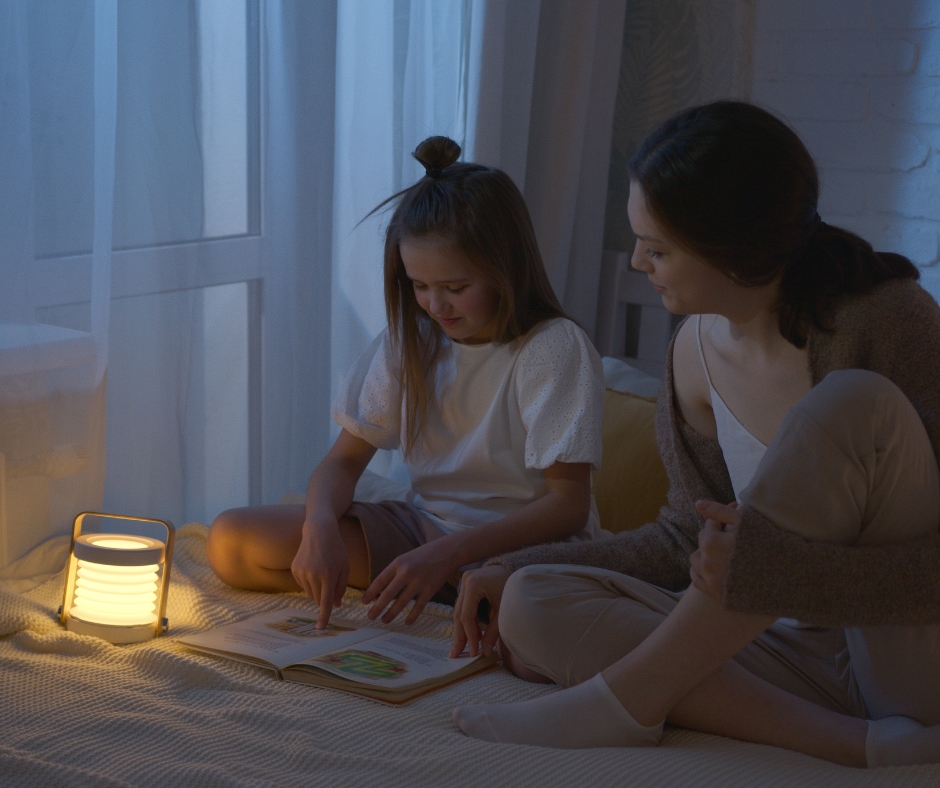How to help your child get a good night's sleep
The unfortunate reality for most students (... and some adults too!) is that sleep is too often sacrificed for other activities such as school work, another episode of a favourite TV show, or "just another minute" mindlessly scrolling on Instagram. While it can be difficult to strike a balance between the things we want to do and the things we have to do, the benefits gained from consistently good sleep justify prioritising it as a long-term non-negotiable in our schedules. Research shows that nearly one in three children are not getting enough sleep and are suffering the consequences. Sleep deprivation has been linked to a variety of negative health outcomes, including behavioural problems, poor academic performance, and health issues. Within this article we discuss the importance of sufficient sleep for students while also providing tips for how to help your child get a good night's rest.
Why is sleep so important?
Sleep deprivation can lead to irritability, anxiety, and depression, all of which negatively impact a child's ability to cope with the demands of school and life. As a result, not getting enough sleep can have significant adverse effects on a child's well-being during an important stage of their development.
Getting enough sleep is essential for a variety of reasons. Adequate sleep helps children stay focused, alert, and energised throughout their day, and improves their overall physical and mental health. Importantly, sleep helps students better manage their emotions, while facilitating memory consolidation which helps children to remember what they have learned in school. Helping your child get enough sleep is a low-hanging fruit that can have a transformative impact on their life.
How can I improve my child's sleep?
Regardless of a child's stage of life, it is important to establish a regular bedtime routine to encourage good sleep patterns. While the activities used to wind-down will differ depending on the age of a child, a consistent schedule will help lay a strong foundation for restful sleep and energised days.
Early Learners (3 - 6 years old)
During a child's preschool years it is recommended that they receive between 10 to 13 hours of sleep. This total can include naps, so remember to factor this time in when determining bedtimes and wake up times.
To help your early learner settle in for a good night's rest it can be helpful to involve them in the routine and frame "going to bed" as something fun to look forward to. Give your child ownership over different aspects of the night time activities, such as choosing the pyjamas they wear to bed or the story they read. Reading a night time story helps reduce the amount of screen time directly before bed, and in addition to being fun for your child it provides a wonderful opportunity to build deeper family connections and develop important literacy skills.
Young Learners (7 - 12 years old)
Primary school children are recommended to sleep between 9 and 12 hours each night. Many of these students struggle to cope with their increasingly packed schedules (longer time spent at school, homework starting to be distributed, and new extra-curricular activities), and insufficient sleep only makes it more challenging to have the energy to be at their best throughout the day. This can have a direct impact on how a child behaves at school, as well as their ability to effectively complete homework.
As a result, it is important to instil good sleep hygiene practices to promote consistent, uninterrupted sleep. Sleep hygiene revolves around creating good sleep habits that help you get a good night's rest. One sleep hygiene practice you can incorporate is having a designated space outside of your child's bedroom that they use to complete homework. Keeping the bedroom device-free can enhance sleep by preventing problems associated with using electronic devices at night, such as the suppression of melatonin which is needed to fall asleep quickly and easily.
Another sleep hygiene practice is to set and maintain a consistent sleep schedule. While it can be tempting to sleep in on Sundays, doing so can make it harder to get up on Mondays! While it may be necessary to have the occasional lie-in to repay a sleep debt, regular deviations can negatively impact the quality of your sleep when reverting back to your typical weekday schedule.
Teen Learners (13 - 18 years old)
The issue of sufficient sleep is particularly alarming for teenage students. Only 27% of secondary school students get the recommended 8 - 10 hours of sleep, with 44% of these students reporting sleeping for 6 hours or less.
In addition to those sleep strategies discussed earlier, a hygiene factor that can be introduced is implementing "wind-down" time. Ditch the devices before bed and create a routine that will make it easier to fall and stay asleep. At least 30 minutes before trying to sleep, avoid electronics, swap your phone for a book, take a warm shower or bath, go through a skincare regime, stretch, meditate, or journal. There is no one-size-fits-all solution, so try out different activities, see what works best for you, and then stick with it!
Change takes time, and while it may be challenging to remain consistent, persevere with your efforts as the benefits are worth it!
© 2021 Telos Education

